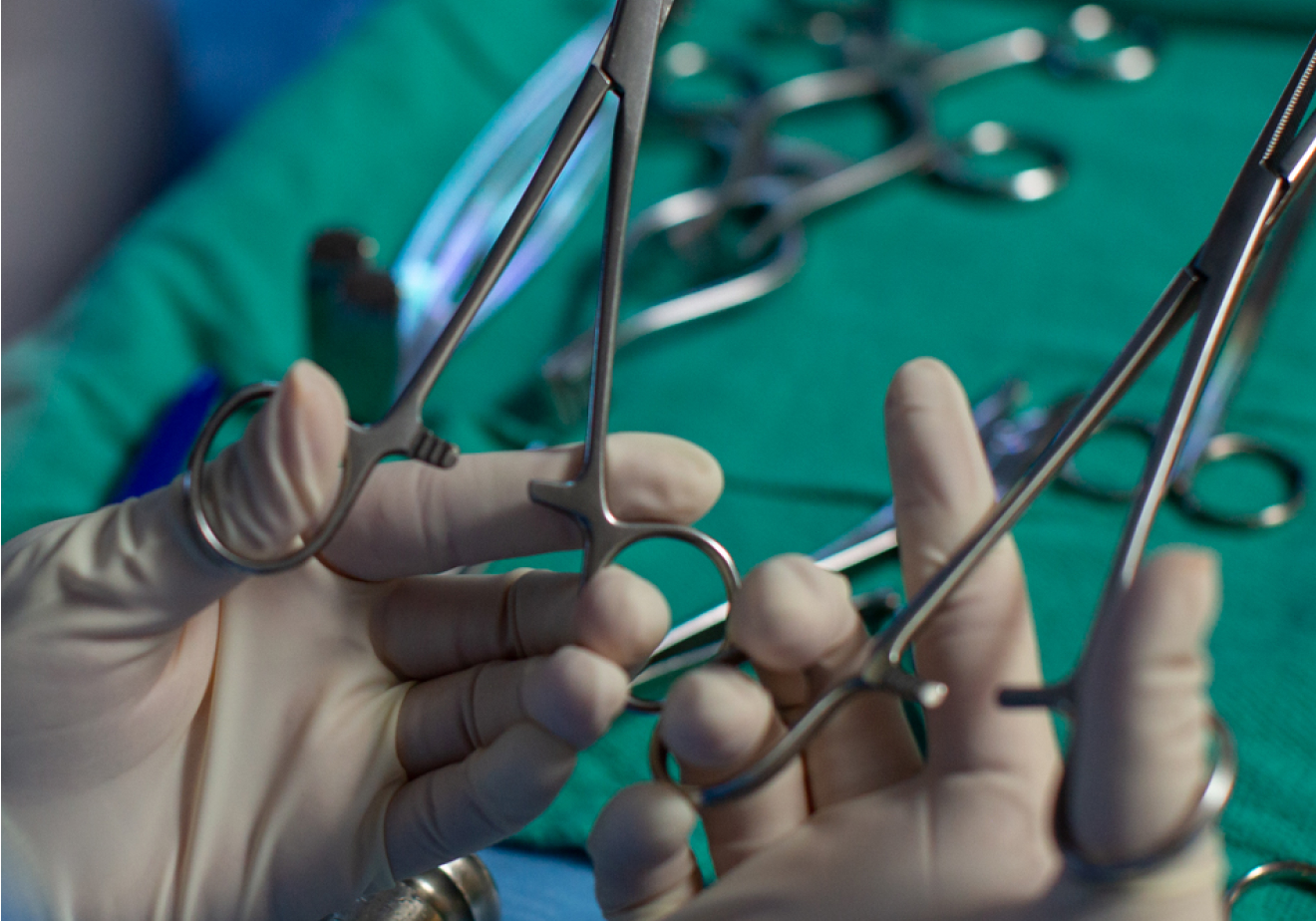Medical Arts Building, 300 South 8th Street, Suite 480 West, Murray, KY 42071
(270) 762-1547
Roux-en-Y Gastric Bypass
In a Roux-en-Y gastric bypass, only a small part of the stomach is used to create a new stomach pouch, approximately the size of an egg.

Considering Weight Loss Surgery?
Weight loss surgery is for people who are severely overweight and have been unable to lose weight or maintain the lost weight from traditional dieting, or increased exercise, behavior modification or physician prescribed medication. It is used for people who have tried other weight loss methods without long term success. Only weight loss surgery is associated with long-term weight loss in the severely obese. This surgery can help people lose approximately 100 lbs. or more of excess weight. With the weight loss and resection of the small intestine people may have normal blood pressure, reverse diabetes and stop gastroesophageal reflux.
What are the criteria for patients considering surgery for obesity or bariatric surgery?
A body mass index (BMI) of 40 or greater is a qualifier for weight loss surgery. If people have a BMI 35 or higher along with 1 or more medical conditions, such as diabetes or high blood pressure, they may qualify for surgery.
Weight loss surgery is also called metabolic or bariatric surgery. This procedure is done most often laparoscopically with small incisions in the abdomen. People are required to stay one or more nights in the hospital following this surgery.
About Roux-en-Y Gastric Bypass
The Roux-en-Y Gastric Bypass is the most common procedure in this country. It has both a restrictive and malabsorption component. Malabsorption procedures shorten the digestive tract and reduce this absorption of calories. This procedure creates a smaller stomach and bypasses the first part of the small intestine (duodenum). The small intestines are divided below the lower stomach outlet and arranged into a Y configuration making a “roux limb.” This surgery can lead to a major reduction in the volume of food the stomach can hold, plus it decreases physical hunger. By bypassing part of the intestines there’s a reduction in nutrient absorption so vitamin/mineral supplements will be required.
Your healthcare team will help you decide if weight loss surgery is a good option for you. Surgery isn’t for everyone and is not advised for people who smoke, use nicotine, abuse medicine or alcohol, or people who are not able to commit to a lifelong change in eating behaviors, activity level and dietary improvement.

Potential problems after Roux-en-Y Gastric Bypass
- Dumping syndrome (nausea, fast heart rate, abdominal cramping, diarrhea)
- Vitamin/mineral deficiencies
- Failure to reach long term weight loss goal
- Weight regain
Before having surgery, you will be required to have a psychological evaluation and have monthly consultations with a Registered Dietitian (RD). The appointments with the RD will give you life skills to not only prepare for the upcoming surgery but also help you change the current way you eat and drink. The RD prepares you for life after surgery and empowers you to move forward with good health and success with weight control. You will also be required to completed preop medical testing and have education from an Exercise Specialist and Nurse Practitioner.
In the final 2 weeks prior to surgery, the RD will provide you with dietary guidance to reduce carbohydrate intake and increase protein intake to decrease size of liver and make your surgery safer.
Following surgery, your stomach can only handle a small volume as it is healing. You will follow a liquid diet the first 2 weeks, then transition to pureed foods for 2 weeks, then to a Soft diet for 8 weeks. By the 3rd month following Roux-en-Y Gastric Bypass you will be able to eat regular foods in a limited amount. Normally the serving size is 1 cup food per meal once your stomach has healed. Since consuming liquids and solids at the same time is not tolerated or recommended, you will be sipping your liquids between meals. Water is the preferred beverage, along with skim milk and protein shakes. Your primary goal immediately following surgery is to stay hydrated thus water should be consumed throughout the day. A few days after surgery, you will begin taking a complete multivitamin/mineral supplement, calcium with Vitamin D and Vitamin B1. Supplements are required for life and the RD will guide you through the process. The bariatric team will monitor your tolerance to your new way of eating/drinking and will check labs to ensure you are nourished as you lose weight.
Keys for Weight Loss Success
Lifelong commitment
Your well-being is dependent on permanent changes to eating healthy, bariatric team follow-ups, supplement usage and increased physical activity. This surgery will assist you in being successful with weight management, but you have to use all the tools given by your bariatric team to reach your full potential.
Balanced nutrition
Healthy dietary intake is essential for long-term success and weight maintenance. Choosing lean protein and small amount of complex carbohydrates at meals will assist with maintaining good health. Incorporating all the food groups into your daily meal plan is a good place to begin for good overall health.
Exercise
Increasing your physical activity level is vital for long-term success following weight reduction. Exercise conserves lean muscle mass, burns fat and increases energy.
Support
An integral part of weight loss success is having a support system in place. Attending bariatric support group meetings will help with the healing process both emotionally and physically.
Long-term weight control
Weight loss surgery with appropriate follow-up is the only intervention that has shown to promote successful long-term weight control.
